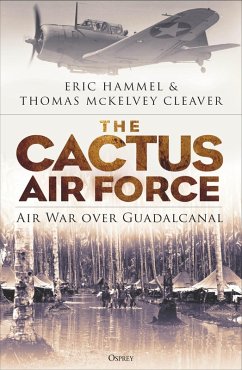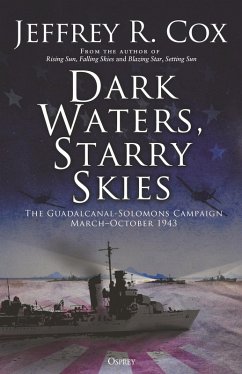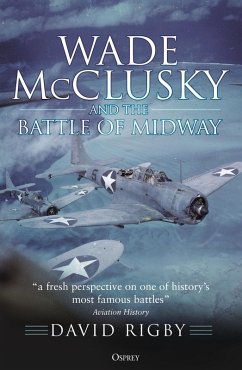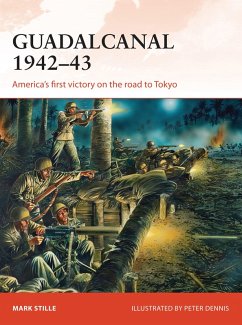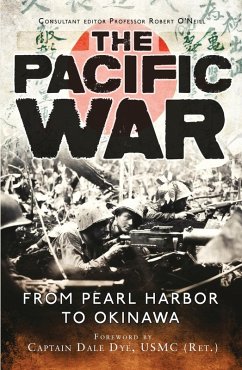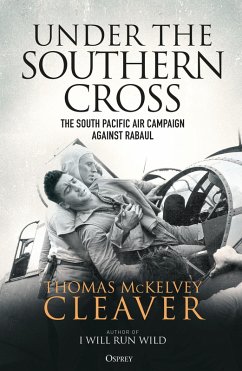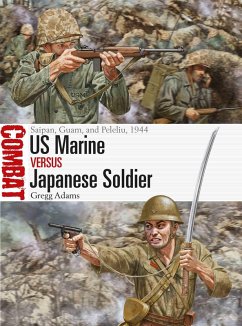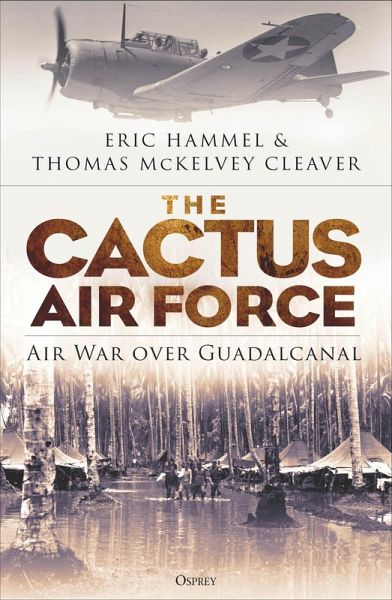
The Cactus Air Force (eBook, ePUB)
Air War over Guadalcanal
Versandkostenfrei!
Sofort per Download lieferbar
9,95 €
inkl. MwSt.
Weitere Ausgaben:

PAYBACK Punkte
5 °P sammeln!
Using diary entries, interviews and first-hand accounts, this vivid narrative brings to life the struggle in the air over the island of Guadalcanal between August 20 and November 15, 1942. The battle of Guadalcanal was the first offensive operation undertaken by the US and its allies in the Pacific War. The three months of air battles between August 20, 1942, when the first Marine air unit arrived on the island, and November 15, when the last enemy attempt to retake the island was defeated, were perhaps the most important of the Pacific War. "Cactus," the code name for the island, became a sin...
Using diary entries, interviews and first-hand accounts, this vivid narrative brings to life the struggle in the air over the island of Guadalcanal between August 20 and November 15, 1942. The battle of Guadalcanal was the first offensive operation undertaken by the US and its allies in the Pacific War. The three months of air battles between August 20, 1942, when the first Marine air unit arrived on the island, and November 15, when the last enemy attempt to retake the island was defeated, were perhaps the most important of the Pacific War. "Cactus," the code name for the island, became a sinkhole for Japanese air and naval power, as they experienced losses that could never be made good. For 40 years, the late Eric Hammel interviewed more than 150 American participants in the air campaign at Guadalcanal, none of whom are still alive. These interviews are the most comprehensive first-person accounts of the battle assembled by any historian. More importantly, they involved the junior officers and enlisted men whose stories and memories were not part of the official history, and thus provide a unique insight. In The Cactus Air Force, Pacific War expert Thomas McKelvey Cleaver worked closely with Eric to build on his collection of diary entries, interviews and first-hand accounts to create a vivid narrative of the struggle in the air over the island of Guadalcanal between August 20 and November 15, 1942.




